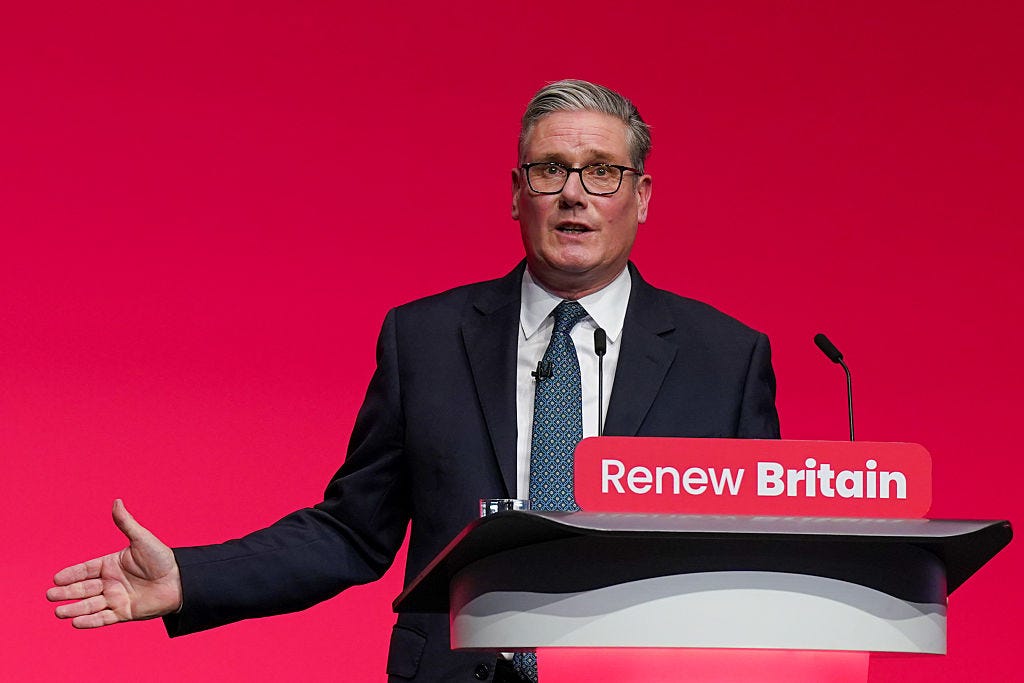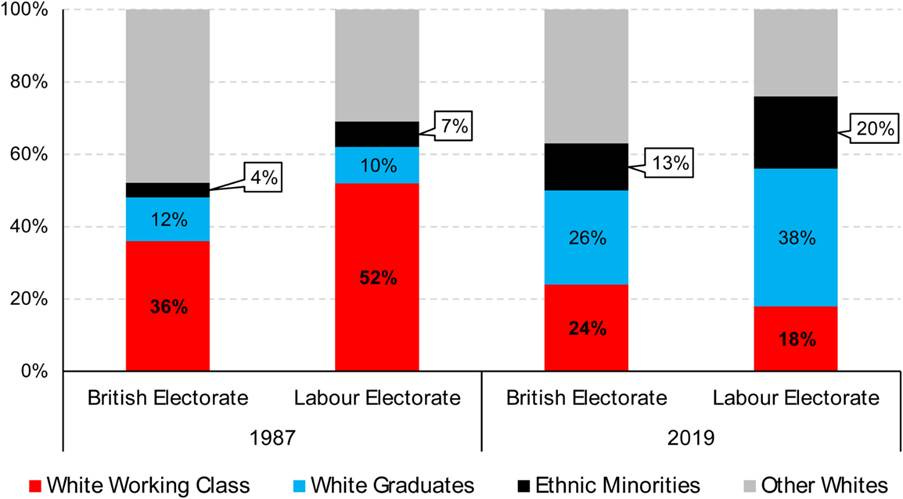Identity Crisis
How Labour can rebuild their voter coalition
Throughout its history the Labour party has been an uneasy alliance between the working classes and leftwing middle class intellectuals. Right at the start of the party’s formation there were arguments between Fabians like Beatrice and Sidney Webb, who wanted government by technocrats, and trade unionists who believed the movement must be led by workers. Over time a distinct “old right” philosophy emerged, often expressed by those from and representing working class areas, that was more incrementalist, more wary of theory and abstract ideas, and more socially conservative.
Immigration has frequently been a flashpoint for clashes between the old right and more liberal wings of the party. In 1968 Home Secretary James Callaghan rushed through the Commonwealth Immigrants Act to block Asians being expelled from East Africa from coming to the UK. It was an openly discriminatory piece of legislation, giving different rights to white immigrants, and was widely criticised by liberals. The Times called it “probably the most shameful measure that Labour members have ever been asked by their whips to support”. But backbenchers were extremely nervous that their constituents’ concerns were not being listened to and well aware that Enoch Powell’s views commanded widespread support.
The majority of Labour’s voters then were white working class. But as a result of deindustrialisation, the expansion of higher education and the growth of ethnic minority populations over time that changed, with the party becoming increasingly dependent on middle-class graduates. This chart illustrates the shift between 1987 and 2019. The same pattern continued in 2024.
Labour’s position on immigration and other social issues steadily became more liberal in line with that changing coalition. There were always “old right” voices concerned about this shift but New Labour’s electoral success seemed evidence it was the correct course. Since 2010, though, and especially since the rise of Reform, those old right concerns have resurfaced with a vengeance.
Much of the party’s current strategic confusion comes down to deep unhappiness at no longer being able to command a majority amongst what is left of the white working class vote. The Blue Labourites – in the tradition of that old Labour right – are fixated on this loss. But crude attempts to appeal to white working class voters risk alienating other, now larger, parts of the coalition. Keir Starmer often seems to be trying to split the difference – using this week’s conference speech to make an impassioned stand against far-right racism, while his Home Secretary announces plans to make it harder for long-term legal immigrants to get Indefinite Leave to Remain.
Political scientists have repeatedly pointed out that the Blue Labour approach risks the loss of more liberal voters while failing to win over the smaller number who have defected to Reform (see this by Ben Ansell, this by Jane Green and Marta Miori, and this by Dylan Difford on here earlier this week).
In this post I want to focus on why so many in Labour are fixated on this part of their electoral coalition. It’s not because they are stupid or unaware of the data. It goes to the heart of what the Labour Party is about and who it’s supposed to represent, which is a deeply personal issue of identity for many of their MPs, ministers and advisers. I’ll look at how these questions of identity are influencing their strategy, the balance they’re trying to achieve, why it hasn’t worked to date, and how it could.
Keep reading with a 7-day free trial
Subscribe to Comment is Freed to keep reading this post and get 7 days of free access to the full post archives.



